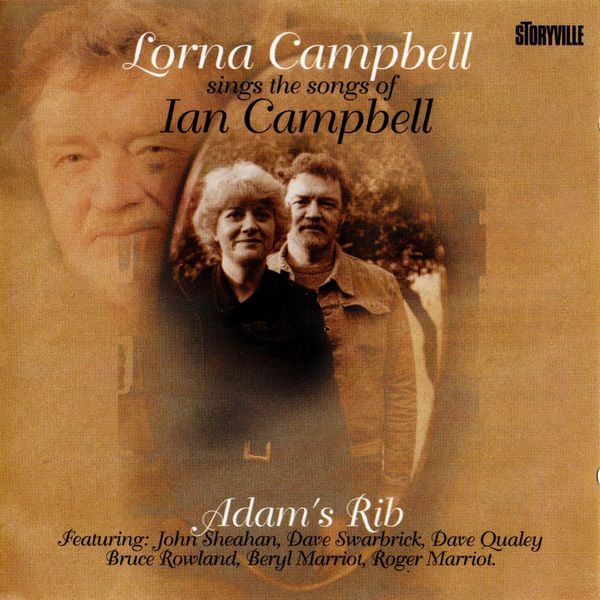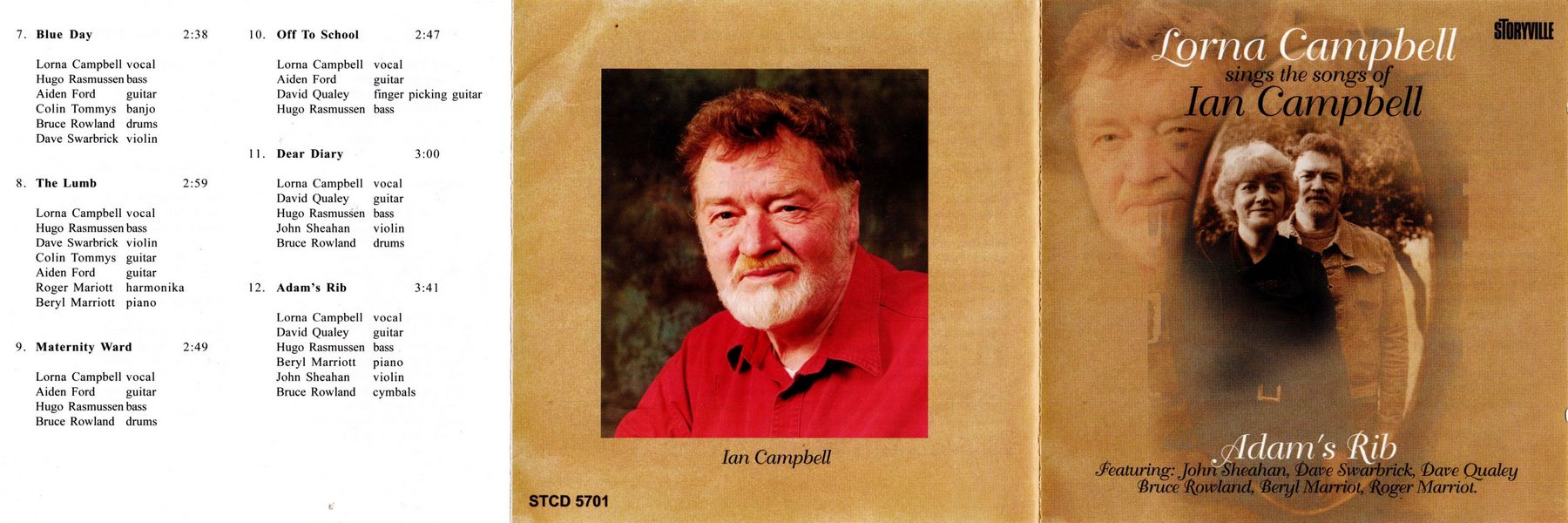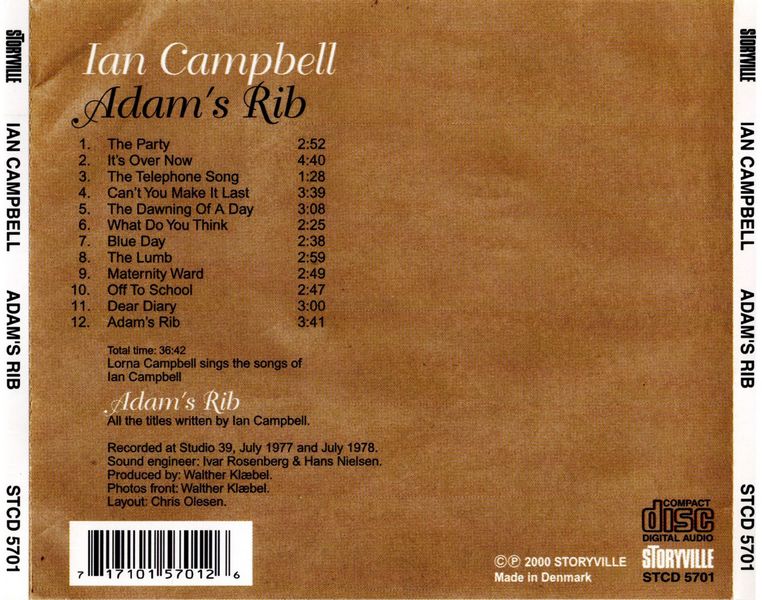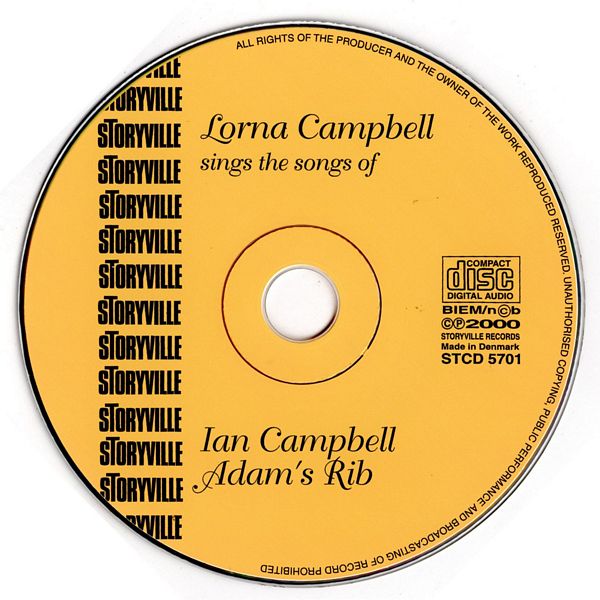
 |

|

 |
| more images |
Sleeve Notes
Lorna Campbell sings songs Ian Campbell Adam's Rib
It all began with "It's Over Now". Depressed and guilty about my failing marriage I had put my feelings into song form and then, to make it suitable for Lorna, I rewrote it from the woman's point of view as "It's Over Now". Lorna liked performing the song and commented on the very positive response it so often evoked in women, who obviously empathised with the song's theme, the despair at the end of an affair.
Lorna was long overdue a solo album and, around this song, gradually the idea emerged of an album on the general theme of a woman's life, with each song illustrating some nodal experience. The idea flourished as Lorna and I proposed song themes to each other.
"How about the START of a relationship, at a party, say? And there's breaking news when you discover you're pregnant … yes, and then living with the LUMP. And in the maternity ward, now that's a female world! How abour seeing your baby off on his feet first day at school … ?" and so on.
When I suggested a song about a young girl's first menstrual period Lorna looked very doubtful. Could it be done inoffensively? A few days later I handed her "Dear Diary", and she read it through with a grin and gave me a thumbs-up sign. "No problem, Bro. And you can go ahead with the premature ejaculation son as well!"
We first recorded the songs in a local Birmingham studio and produced a few albums for private circulation. We sent one to Walther Klæbel, the man with whom we had started the Danish folk scene, and a dear friend. Within a few days we got a call from him.
"This recording sounds as if some friends got together and improvised it over a weekend".
"Yes, that's just about what happened", I replied.
"Well, these songs are too good for that", said Wally. "They deserve some production, and I would like to provide it, with Sonet Dansk".
And so later that year Lorna and I with our latest accompanists, the youngsters Aiden and Colin, travelled to Copenhagen, where at Studie 39 we were welcomed by Wally and our favorite Danish bassist Hugo for a week of recording. For most of that week we were also privileged to have at our disposal the outstanding talent of guitarist Dave Qualey, composer and concert artist. We knew that David performed only on his own albums and refused all session work, and we appreciated his friendly gesture in making an exception to play on our albums.
It was not a hard week's work. Lorna was familiar with the songs and, in our traditional way, she recorded each track as a straight performance, while onto Hugo's bass line Aiden and Colin laid only a basic chord sequence, embellished by the Qualey guitar magic. Simple; and when we had finished we left for home. It was then that Wally's production flowered.
In the following year many of our musician friends performed in Denmark and from them Wally selected those he thought most adaptable and sympathetic and invited them to contribute to our album. So it is that on one track we hear the violin of John Sheahan, fabled fiddler with the Dubliners, and on another the harmonica of Roger Marriott, perhaps better known as a folk scholar and musicologist. His wife Beryl Marriott may be the only significant pianist in British folk music and she can be heard scintillating on several tracks. Fairport Convention toured Denmark that year, which explains why fiddler Dave Swarbrick, a lifelong friend since his early days in my group, brought with him the crisp swing technique of drummer Bruce Rowland. All in all, Wally produced a sound unlike anything we had ever attempted before.
Before the record was ready for release the Campbell Group underwent a traumatic crisis with the death of our youngest founder member and Lorna's divorce from husband Brian. For a while the Group ceased to function and Sonet Dansk decided there was no profit in releasing a recording of a defunct group. Now, more than twenty years later, it seems there has been a change of mind, and I for one am very glad. I'm really looking forward to hearing these tracks.
Ian Campbell